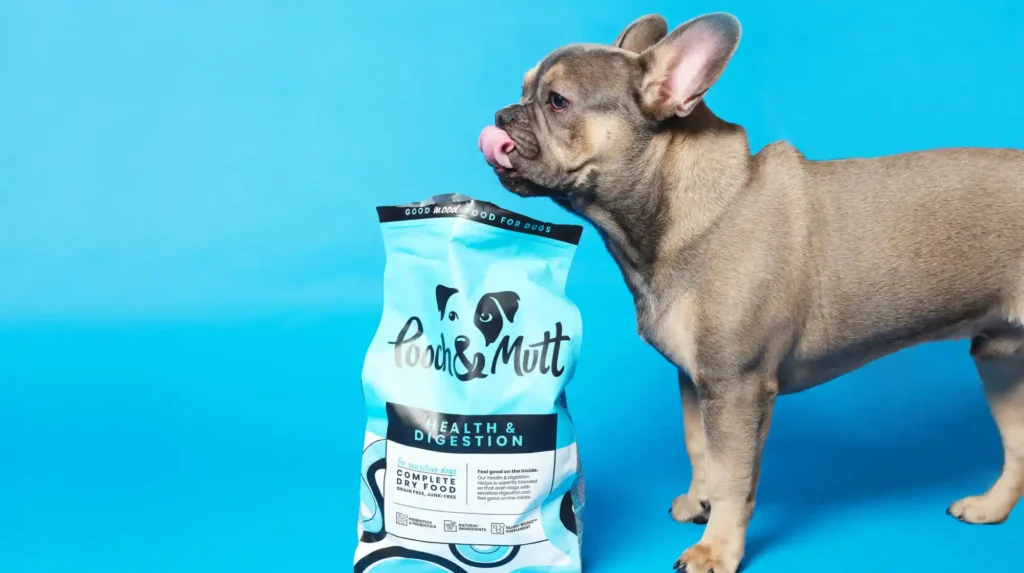Probiotics have become a hot topic in the world of health and wellness. Many of us rely on these “good bacteria” to improve gut health, support digestion, and boost our immune systems. But if you're a pet parent, you might be wondering: Can I give my dog human probiotics?
The short answer is yes, but there are some important considerations. Let's dive deeper into what probiotics are, how they work for dogs, and when it's okay to use human probiotics for your furry friend.
Table of Contents
ToggleWhat Are Probiotics?
Probiotics are live microorganisms, primarily bacteria and yeasts, that promote a healthy balance of gut bacteria. They work by aiding digestion, enhancing nutrient absorption, and maintaining overall gut health.
For dogs, probiotics can help with:
- Digestive issues: Diarrhea, gas, bloating, or constipation
- Immune support: Fighting off harmful bacteria and pathogens
- Stress management: Helping the gut recover after stressful events or changes in diet
- Skin and coat health: Alleviating allergies and improving skin conditions
Can Dogs Take Human Probiotics?

Technically, dogs can take human probiotics. Many of the strains used in human probiotics, such as Lactobacillus and Bifidobacterium, are also beneficial for dogs. However, there are a few things to keep in mind:
- Species-Specific Needs: Dogs and humans have different gut microbiomes. While some human probiotics can benefit dogs, they may not address all of your dog's specific needs.
- Dosage: The amount of probiotics in human supplements may be too high or too low for your dog. Overdosing could cause digestive upset, while underdosing may not provide any benefits.
- Ingredients: Always check the label for harmful additives, such as artificial sweeteners (e.g., xylitol), which are toxic to dogs.
When to Use Human Probiotics for Dogs
If you’re in a pinch and only have human probiotics at home, they can be a temporary solution for your dog. For example, if your dog is experiencing mild diarrhea or stress-induced digestive issues, a small dose of human probiotics may help.
How to Give Human Probiotics to Dogs:
- Start small: Begin with a fraction of the human dosage based on your dog’s weight.
- Observe: Watch for any side effects like gas or upset stomach. If your dog shows any signs of discomfort, stop immediately and consult your vet.
- Short-term use: Stick to short-term use unless directed otherwise by your veterinarian.
The Best Option: Probiotics Made for Dogs
While human probiotics can work in some cases, probiotics specifically formulated for dogs are always the better choice. These products are tailored to your dog’s unique gut microbiome and typically contain dog-friendly strains like Enterococcus faecium and Bacillus coagulans.
One highly recommended option is this canine-specific probiotic supplement. It’s formulated to support your dog’s digestive health and overall well-being, making it a reliable choice for long-term use.
FAQs About Giving Dogs Human Probiotics
1. What are the risks of giving my dog human probiotics?
The main risks include potential overdosing and the presence of harmful ingredients like xylitol. Always read labels carefully and consult your vet if unsure.
2. How much human probiotics can I give my dog?
This depends on your dog’s weight and the specific probiotic. A general rule is to start with a small fraction of the human dosage and adjust based on your dog’s response.
3. Are there side effects of probiotics for dogs?
Side effects are rare but can include mild gas, bloating, or diarrhea. These usually resolve as your dog’s gut adjusts.
4. Can I give my dog yogurt instead of probiotics?
Yes, plain, unsweetened yogurt with live cultures can be a good source of probiotics for dogs. However, avoid flavored yogurts or those with added sugar or artificial sweeteners.
5. How long does it take for probiotics to work in dogs?
You may notice improvements in your dog’s digestion within a few days, but it can take 1-2 weeks for more significant changes.
Final Thoughts
While human probiotics can be a quick fix for your dog in certain situations, the best approach is to choose probiotics specifically designed for dogs. These products cater to your pet’s unique needs and are safer for long-term use.
If you’re looking for a reliable probiotic for your pup, don’t hesitate to check out this vet-approved option on Amazon. Your dog’s gut health will thank you!














